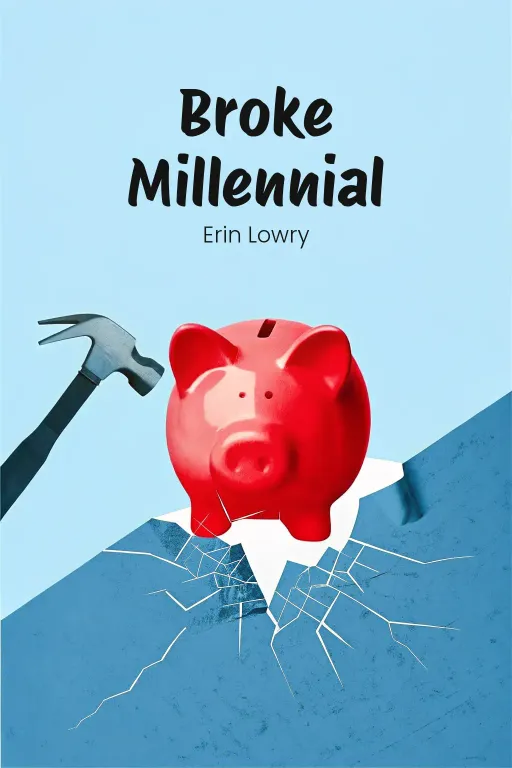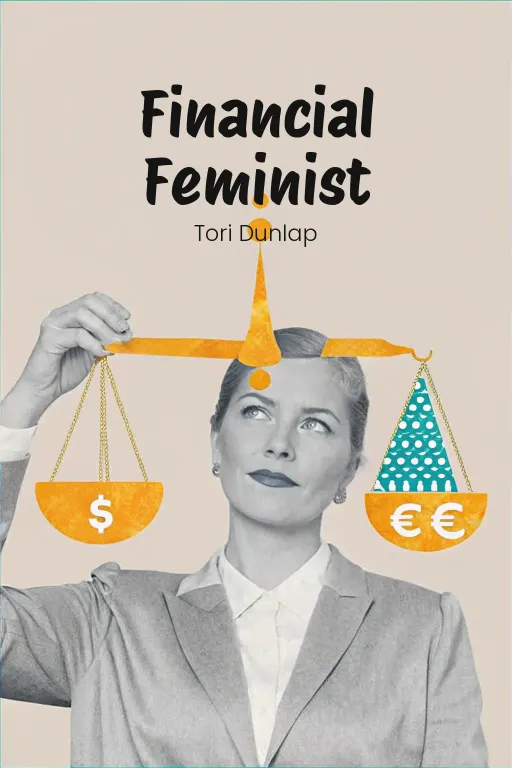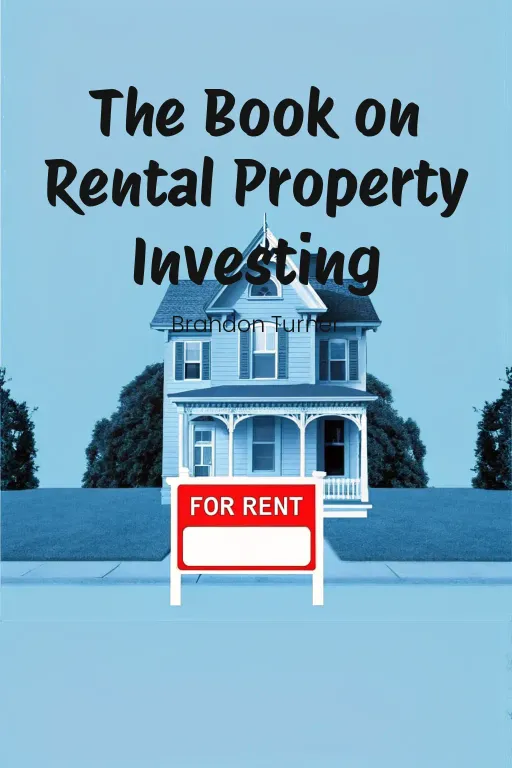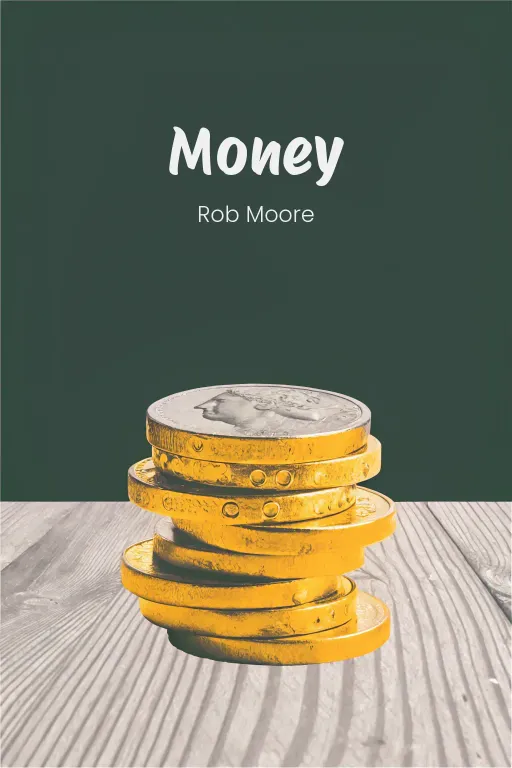
Design a Life: More Than Money
Podcast by Let's Talk Money with Sophia and Daniel
A Proven Path to All the Money You Will Ever Need
Design a Life: More Than Money
Part 1
Daniel: Hey everyone, welcome back! Let me throw a question at you: Imagine money was totally off your mind. What would you do? Would you finally take that trip around the world, kickstart that business idea you've always had, or just spend more quality time with the people you love? Financial freedom, it's not just about early retirement, right? It’s about taking your life back. Sophia: Alright, Daniel, but let’s be honest here. How realistic is that for most people? With rents going up, bills piling up, and life throwing curveballs like unexpected car repairs, most folks are just trying to stay afloat. So, is this whole "financial freedom" thing just a nice fantasy, or are we missing something crucial? Daniel: Exactly! And that's what we're digging into today. We're tackling Grant Sabatier's “Financial Freedom”. It's a “really” impactful guide that’s both inspiring and gives you actionable steps. Sabatier offers a plan, especially for millennials, to rethink money and how we work. He combines being smart about spending, investing wisely, and bringing that entrepreneurial drive to “really” take control. Sophia: Big promises. But don't worry, I'm here to keep things real. So, what exactly are we going to cover today? Daniel: Okay, so here’s the plan. First, we’re going to look at WHY getting to financial independence can change everything. It’s not just about the money—it impacts how you live, how you think, and what matters most to you. Then, we’ll break down Sabatier’s key strategies, things like “really” boosting your income and getting smart with investments. Lastly, we’ll talk about creating a life where your money actually supports your values, acting like a compass pointing you towards what truly matters. Sophia: Sounds like a lot to unpack – but I'm ready to question everything. Let’s see if this idea of turning money into freedom holds up. Daniel: Awesome! Let's jump right in!
Financial Independence
Part 2
Daniel: Okay, so let's dive into the core concept: financial independence. Essentially, it's reaching a point where your wealth supports your lifestyle without needing active employment. As Sabatier points out, it's more than just a milestone; it signifies a real shift in perspective. Instead of seeing money as the ultimate objective, you start viewing it as a tool for creating freedom and choices. Sophia: Right, let's unpack that a bit. When people hear "financial independence," the image that often pops up is retiring early, maybe on a beach somewhere at 35, right? But isn't it about considerably more than just quitting your job? Daniel: Absolutely, Sophia. It's not just about kicking back and never working again. It's about having the freedom to choose how, when, and why you work—or even if you choose to work at all. The real value lies in reclaiming your time, which is our most precious resource. For example, someone who achieves financial independence might dedicate themselves to volunteering full-time for a cause they believe in, while another person might travel the world or pursue a creative endeavor. Sophia: Right, so it's about flipping the conventional script. Instead of your life being dictated by your paycheck, your paycheck now serves your life’s purpose. Sounds appealing... and also pretty ambitious. But what's the basic calculation here? Because if someone advised me to simply "quit your job and live off your savings," my immediate thought would be, "Okay, when do I file for bankruptcy?" Daniel: That’s where the "financial freedom number" comes in—the cornerstone of Sabatier's strategy. In simple terms, it’s the amount of money you need invested to generate enough passive income to perpetually cover your expenses. He often uses the 4% rule to determine this: you divide your annual expenses by 0.04. So, for example, if you need $50,000 annually to live comfortably, your target would be $1.25 million. Sophia: Ah, the legendary 4% rule. If I had to guess, I'd say it's based on historical averages, with the underlying assumption that market growth will continue, right? Daniel: Precisely. It stems from the Trinity Study, which demonstrated that withdrawing 4% annually from a well-diversified investment portfolio should sustain you for at least 30 years, and more likely for much longer. The key is letting your money generate returns through compounding, while you only withdraw a small portion each year. Though, Sabatier stresses that your "freedom number" isn't fixed—it needs to be adaptable. Inflation, unexpected costs, or life changes can all affect that number. Sophia: Sure, that’s great in theory, but what happens when when the market tanks? That $1.25 million nest egg might not feel very secure when the stock market takes a dive, like it did in 2008 or even 2020. Doesn’t “financial independence” suddenly feel less independent when your portfolio takes a 30% hit? Daniel: A valid point. That's where diversification becomes so important. Sabatier advocates for a mix of stocks, bonds, and various passive income streams to cushion against market fluctuations. Think rental income, dividends, or even businesses that you own. He often mentions "house-hacking," where someone buys a multi-unit property, lives in one unit, and rents out the others. This strategy reduces your own housing expenses and brings in consistent monthly income. Sophia: Okay, let’s pause on the house-hacking idea for a moment. It sounds ideal in theory—your tenants cover your mortgage, and you just sit back and collect the cash. But Daniel, considering how expensive housing is, how realistic is it to find a property that actually fits this model? Plus, being a landlord isn't exactly a stress-free endeavor. Daniel: True, it’s definitely not a one-size-fits-all solution. House-hacking is just one example. Even smaller-scale investments, like renting out a room in your home through platforms like Airbnb, could make a difference. What Sabatier really emphasizes is combining these strategies with systematic, low-cost investing, especially in index funds. Funds like a total stock market fund or an S&P 500 index fund, for example, are simple, diversified, and have historically proven reliable for long-term growth. Sophia: Simple and reliable aren’t usually words you hear in the same sentence as “personal finance.” I get why Sabatier emphasizes them. So, we know the basic tools, but what's really holding people back? Why isn't everyone actively pursuing this "freedom number?" Daniel: That's a really insightful question. A lot of it boils down to our personal relationship with money. Sabatier himself is a great example. When he had only a few dollars to his name, it wasn't just his empty bank account that held him back - it was his mindset. He talks about initially having a scarcity mentality, constantly fearing he'd never have enough, but that shifted when he started viewing money as a means to opportunity rather than a barrier to happiness. Sophia: And let's be honest, pursuing financial independence takes sacrifice. He saved up to 80% of his income. Working multiple side hustles and avoiding any unnecessary spending? That’s not a walk in the park. Daniel: Definitely not. But he also shows that these sacrifices are temporary. Once you reach financial independence, the rewards become much more apparent than the effort you put in. Suddenly, the things you had to cut back on—the impulse buys, the nights out—pale in comparison to the freedom you've gained. Sophia: Alright, so it's about playing the long game—deferring gratification for a bigger reward. I get that. But you know, this concept feels deeper than just math or shrewd investment strategies. It’s a redefinition of wealth itself. Daniel: Exactly! Sabatier makes this point clear: financial independence isn’t about hoarding wealth; it’s about aligning your life with your core values. Do you measure wealth in monetary terms, or in terms of time, freedom, and fulfillment? Ultimately, what constitutes a truly meaningful life for you? Sophia: Heavy questions, no doubt. But definitely important. It's kind of ironic—money isn’t the ultimate goal in his philosophy, even though it’s the vehicle for getting there. Daniel: Precisely. Financial independence empowers you to design your life, not just survive it. That’s why Sabatier’s approach resonates so deeply. Whether it's starting a passion project, spending more time with family, or pursuing long-held hobbies, this framework is about creating space for the things that are truly important. Sophia: I hear you. So the takeaway is about reclaiming control—over your time, priorities, and future. Even if it takes years to reach that "freedom number," the journey itself forces you to re-evaluate how you spend your money, and by extension, your life. Daniel: Absolutely. There’s a lot more to discuss on this topic, but the message is clear: financial independence is not just about escaping work; it’s about shaping your life into one that reflects your most important values.
Wealth-Building Strategies
Part 3
Daniel: So, understanding financial independence naturally leads us to explore how to actually achieve it, right? That means diving into strategies like income diversification and building smart financial habits. That brings us to our topic today: wealth-building strategies. It’s all about bridging the gap between knowing what to do and actually doing it – detailing practical steps you can take to build wealth, always keeping financial independence in sight. Sophia: Okay, I like it. So, we're rolling up our sleeves now. We get why financial freedom is important. Now we're talking about how to make it happen. So where do we even begin? Daniel: Well, first things first, income. To build wealth, you basically need to earn more, spend less, or the ideal scenario – do both! Maximizing your income is key, and Sabatier emphasizes two really powerful ways to do this: side hustles and salary negotiations. Sophia: Side hustles, alright. That's first on the list. I'm intrigued, but I've heard a lot about side hustles, you know? It seems like everyone with a laptop thinks they're one viral post away from becoming the next Bezos. What's Sabatier's take on all this? Daniel: He really focuses on scalability which means turning these "side projects" into real wealth-building opportunities. Take Matt, right? He started walking dogs when he was in college, charging like $5 a walk. Fast forward, and he turned it into a legit business. By scaling – hiring people, expanding his client base – his dog-walking gig was bringing in over $200,000 a year. Then, he reinvested those earnings into index funds and amassed $1.5 million by the time he was 30. And bam, financial independence achieved! Sophia: Okay, so to be clear, Matt wasn’t just, you know, walking dogs with a bunch of leashes forever. He saw the demand, scaled it up, reinvested smartly. It’s easy to admire that, but how realistic is it for most people to turn a side hustle into a six-figure business? Daniel: No doubt, Matt's is an exceptional story, but it really shows the principle of leveraging scalability and reinvesting wisely. Even if your side hustle doesn't hit six figures, that extra income can seriously shorten your financial independence timeline, especially if you're putting it into investments. Sophia: Still, let's be real. That grind, you know – working a day job and juggling a side hustle? That’s not all that fun! It's not always sustainable. When do you say, "Okay, enough is enough?" Daniel: Yeah, that's fair. Sabatier does acknowledge that there are burnout risks, which is why your side hustle should really align with your skills and interests. If possible, you should look for things that are passive or semi-passive. Like starting a blog or making a digital product that can generate recurring income after you release it. Sophia: And if side hustles aren’t your thing, what's the other option? Daniel: That's where salary negotiations come in. Sabatier says it's one of the most underused levers for boosting your income. So, take Rob for example, a marketing exec who found out he was being underpaid. Instead of just being frustrated, he gathered data on what he was worth, showed his contributions to the company, and asked for a 15% raise. He not only got it, but that confidence helped him with similar situations in the future. Sophia: So Rob did his homework, he did market research, quantified his worth, and built a persuasive case. Sounds simple in theory, but isn't the fear of getting rejected a big problem here? Daniel: Absolutely. That fear is real, but it's also manageable. Sabatier talks about how you're really undervaluing yourself if you're not advocating for what you're worth. Even small pay raises add up over time, especially when you reinvest them. Then honestly, what's the worst that can happen? Your employer says no, but at least you're on their radar as someone who's indispensable. Sophia: That makes sense, and it’s also lower risk. So, less risky than quitting to start a dog-walking empire. So, far we’ve covered raising income, let's switch gears -- what about cutting expenses? Daniel: Glad you brought that up. Sabatier emphasizes optimizing the big costs – housing, transportation, recurring bills – rather than worrying about lattes or avocado toast. One main strategy for housing? House-hacking. Sophia: Ah yes, welcome to becoming a landlord's paradise. Buy a duplex, live in one unit, rent out the other, and the tenants pay your mortgage. Sounds great, but how does that work when properties are crazy expensive? Daniel: It definitely takes some upfront analysis– finding properties in the right price range, factoring in the potential for rental income. But Sarah, an example in the book, used first-time buyer programs to buy a modest duplex. By renting out the second unit, she covered 80% of her mortgage, redirected her savings into investments, and eventually used her home equity to buy another property. Sophia: It's a domino effect, less out-of-pocket spending on housing frees up funds for wealth-building. I see the appeal. For those who can’t fathom being landlords yourself, what are the alternatives? Daniel: Sabatier does suggest scaling back in other major areas, such as transportation, or really focusing on value-driven spending. He talks about "per-use cost analysis," where you think about purchases based on how long they'll last and how useful they'll be. So, for example, Sarah invested in a really durable car and saved thousands in maintenance over the years compared to a cheaper alternative that would've broken down sooner. Sophia: So, it's not just about being frugal, it’s about being intentional. Spend smarter, where it matters. Daniel: Exactly. That shift to intentional spending pairs perfectly with investing. Sabatier champions simple, effective strategies like low-fee index funds. The case he illustrates is eye-opening: two investors contribute $10,000 annually for 30 years. One sticks to a low-fee fund with a 0.04% expense ratio, while the other opts for an actively managed fund with 1% fees. The low-fee investor ends up with $270,000 more – purely by avoiding high costs! Sophia: Math doesn’t lie, but I can already hear people being like, “Index funds? That’s boring. What about high growth stocks? Or Bitcoin?” Daniel: Sabatier isn’t against risk-taking, but he does stress consistency and predictability. Index funds mirror the market's average, and keep you invested for the long game. Quick wins may seem exciting, but as he puts it, “boring” often leads to greater financial security. Sophia: Hard to argue with that. And don’t skip on tax-advantaged accounts, right? A 401(k) or Roth IRA can really boost those returns by minimizing what you pay to Uncle Sam. Daniel: Definitely. Pre-tax contributions to a 401(k) reduce taxable income today, while Roth IRAs offer tax-free withdrawals in retirement. Both are must-haves in your toolkit when it comes to wealth-building. Sophia: Okay, so we’ve got side hustles, smarter spending, and well-placed investments. If you piece all of this together, it starts looking less like wishful thinking and more like it could be a viable path. Daniel: That’s what makes Sabatier’s framework great. It’s not about one-size-fits-all solutions, but stacking multiple strategies to create a comprehensive wealth-building system. Each one just gets you closer and closer to financial independence.
Mindset and Lifestyle Design
Part 4
Daniel: So, with solid wealth-building strategies, we really need the right mindset and habits to keep that financial freedom going. That's where lifestyle design comes in, moving beyond the tactics—earning, saving, investing—to the underlying philosophy. It's about shifting to an abundance mindset, redefining what wealth really means, balancing work and rest, and staying adaptable, so that financial freedom is truly meaningful and lasting. Sophia: Philosophy, huh? Trading spreadsheets for a self-help seminar? I'm intrigued, but you’ve got to show me how thinking differently actually translates into more money in the bank. Daniel: Okay, let's start by contrasting a scarcity mindset—where money feels limited and you're constantly worried—with an abundance mindset, where you see money as a tool. Remember Sabatier’s starting point? Two bucks in his account, living with Mom and Dad, feeling totally stuck. That's classic scarcity. Sophia: Yeah, the classic “rags to riches” story. But what exactly flipped the switch for him? Daniel: It all started with one simple question: “What kind of life do I actually want?” Instead of obsessing over what he lacked, he focused on possibilities. Then, he took action on what he could control, that's learning about personal finance, starting side hustles, saving like crazy. The scarcity didn't vanish overnight, but by believing in opportunity, he channeled his energy from anxiety to action. Sophia: So, scarcity is reactive—always putting out fires, living paycheck to paycheck. Abundance is proactive—seeking solutions, looking ahead, right? Daniel: Exactly. And why do so many people get stuck in scarcity? Fear. Fear of running out of money, fear of making mistakes. But Sabatier's story proves that learning about money and taking even small steps shrinks that fear. You build momentum, and suddenly, those huge problems don’t seem so scary anymore. Sophia: Okay, action conquers fear. But that's just the start, isn’t it? Once you're not just focused on survival, how does that change what you want from financial freedom? Daniel: That's where we redefine wealth. Sabatier says wealth is way more than just a fat bank account—it’s time, experiences, and a sense of purpose. Think about Joe, the tech executive in the book. He had it all—six-figure salary, fancy stuff—but he was miserable. When he re-prioritized family, travel, and giving back, he realized those things were worth more than any paycheck. Sophia: So, is success measured in dollars or in meaning? It’s interesting because so many people think money equals happiness, then find out that more money doesn't actually fill that void. Daniel: Precisely. For Joe, financial independence wasn't about having more stuff, but having “better”—better time, better relationships, a better quality of life. And that leads to lifestyle design. Take Emily, the teacher who became financially independent. She loved teaching, but wanted more control over her time. So, she went part-time, tutoring and using her financial freedom to balance work with personal fulfillment. Sophia: Right, financial freedom isn't always about retiring completely. Sometimes it's just about having options. Emily stayed in education, but ditched the bureaucracy. Joe refocused on his family. It's using money to live intentionally, instead of letting work run your life. Daniel: Exactly! What’s the point of freedom if you don't use it to create a life you love? However, let's talk about balance. Hustling nonstop to save can lead to burnout, Sabatier warns against it. Even while building wealth, it's crucial to prioritize rest and strong relationships. Sophia: Because they don’t hand out awards for most productive during your final moments. You know, I liked that story in the book about the 90-year-old billionaire who’d trade it all to be young again. Time really is more valuable than money, isn’t it? Wealth-building shouldn't suck the joy out of your life; it should create the space to actually enjoy it. Daniel: Couldn’t agree more. And while balance is key, we should also talk adaptability, especially as our goals change. Sabatier says financial independence isn’t a final destination, it grows with you. Take Dan, who aimed for early retirement but found new purpose mentoring young people. His priorities shifted, and financial independence let him pursue that. Sophia: So, wealth is dynamic—it evolves as you evolve. And that goes for learning, right? Lifelong growth is another key. Sabatier talks about constantly learning about personal finance, staying curious, and adjusting your strategies. Daniel: Exactly. You know, financial freedom isn’t just a destination, it’s an ongoing journey to align your life with what matters most. That mindset, whether it’s learning new skills, connecting with new people, or simply being open to change, keeps you not only financially secure but personally fulfilled. Sophia: Right, that’s the big picture, isn’t it? Money on its own won’t give your life meaning, but it gives you the foundation to design a life that does.
Conclusion
Part 5
Daniel: So, today we really dug into financial independence, and hopefully showed it’s more than just a specific dollar amount sitting in your bank. It’s really more of a mindset shift, a way to take back control of your time, and build a solid base for living the life you actually want. We unpacked Sabatier's strategies: figuring out your financial freedom number, building wealth with smart income ideas, being more aware of your spending, and investing wisely. And, finally, we talked about how your mindset and lifestyle can turn financial freedom from just a goal into a really satisfying, adaptable way of living your life. Sophia: Exactly. And if there’s one thing that really stuck with me, it’s that financial freedom isn’t just about kicking back early or "escaping" work. It's about having options. It's about really defining what wealth means to you. Maybe it's cutting back on work to chase your passions, spending quality time with family, or simply finding that balance we all crave. Seriously, the goal isn't just piling up cash; it’s crafting a better life, right? Daniel: Precisely! So, here’s a challenge for everyone listening: really think about what financial freedom looks like for you, personally. What kind of life do you truly want? Start small; calculate your freedom number, take a closer look at where your money’s going, or explore a side hustle idea you've been kicking around. Remember, every little step you take, no matter how small, moves you closer to aligning your money with what really matters to you. Sophia: And keep in mind, this is a marathon, not a sprint. It's about building a life where money helps you do meaningful things, not just struggle to survive. So, take that first step, and let your financial independence journey guide you towards the freedom you absolutely deserve. Daniel: Thanks so much for tuning in today, everyone!









